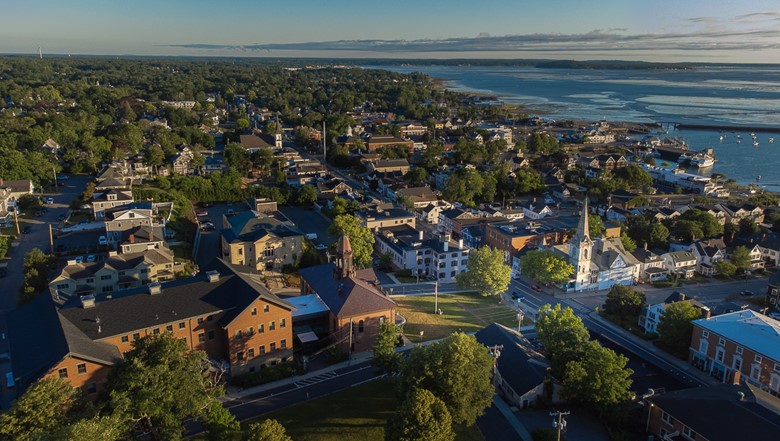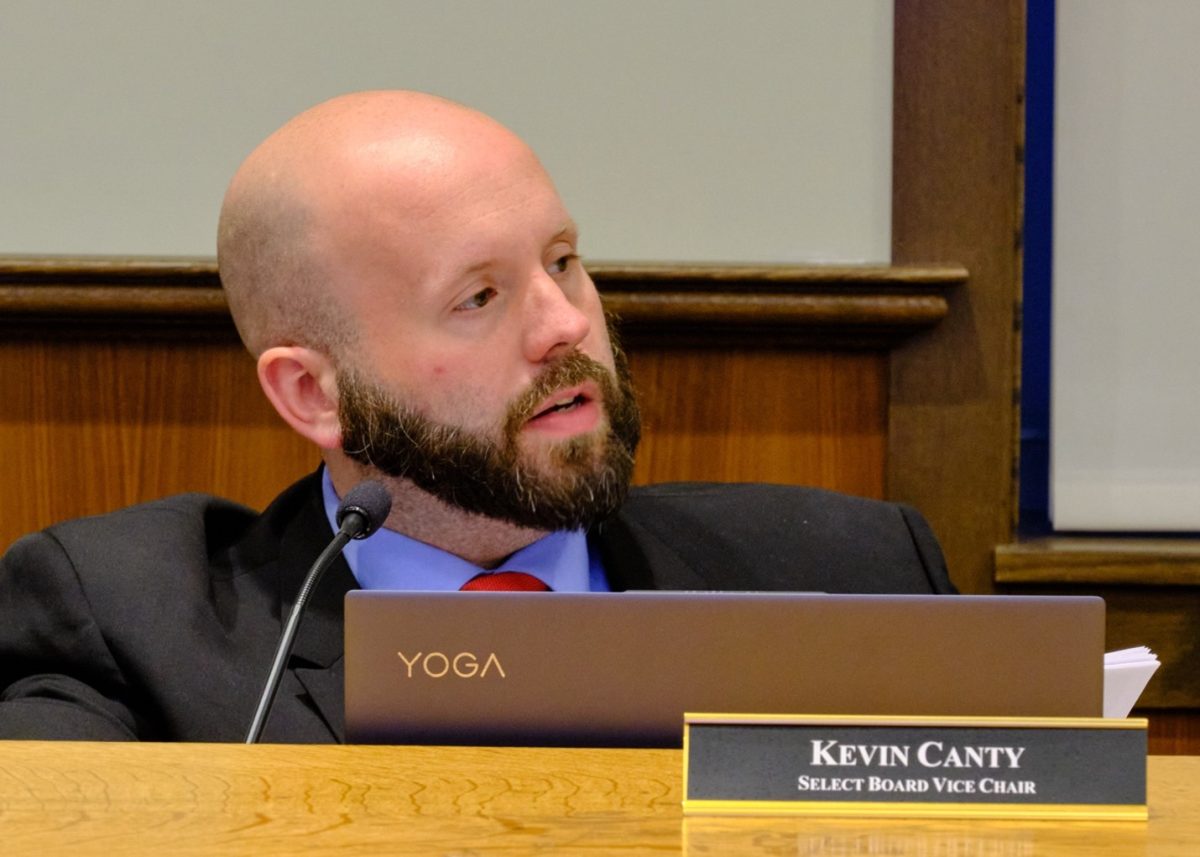Downtown restaurants this year will have to shoulder more of the costs of setting up outdoor dining, a pandemic-born dining option that quickly became popular with many residents and visitors.
The Select Board Tuesday decided that the town should stop covering all of the expenses related to installing outdoor dining areas in front of restaurants on Main and Court streets, as it has since 2021. It also shortened the outdoor season. Instead of starting on Apr. 1 and ending Nov. 1, it will begin on May 13 and end on Oct. 15.
The program’s renewal came over the objection of Town Manager Derek Brindisi, who said that any town funds spent on helping private businesses means there is less money to go toward other public projects, such as road maintenance.
Last year, the town charged restaurants $2,000 to renew a license for up to 29 outdoor seats. Those applying for the first time paid $2,500. The town heavily subsidized the cost of the so-called parklets by using federal funds available during the pandemic, said Brad Brothers, assistant town manager. But that money is no longer available, he said.
The license fee to renew a parklet this year is $1,000. A license for a new parklet will cost $2,900.
The cost to the town to set up each area is expected to be $5,000 for restaurants that renew outdoor dining. Brothers told the board that the police detail required during the assembly accounts for $1,000 of that amount. Department of Public Works labor adds another $1,700, and flowers cost $2,300 per parklet over the course of the outdoor dining season.
Parklets for restaurants applying for the first time will cost about $7,200, Brothers said. The $2,200 difference is attributable to the price of materials for a new dining area — mostly lumber.
“I don’t necessarily have a problem with the town contributing the labor, minus the police detail component of it,” said Select Board member Kevin Canty. “I do not personally believe that the town should be footing any more of the bill than that.”
The board eventually decided that restaurants will be required to pay for flowers this year.

Rick Vayo, the chair of the Plymouth Outdoor Dining Committee when it was first set up in 2021, and co-owner of the Plimoth General Store, said that one parklet has up to eight flower beds.
Andrew Rivera-Myers, co-owner of The Artisan Pig restaurant and a board member of the Plymouth Downtown Waterfront District, said to defray the cost of flowers, the district could use $25,000 in state funds earmarked for the district by State Rep. Kathleen LaNatra.
Restaurants may also have dining without using a parklet. They would pay $100 a seat and be subject to the same maximum of 29 seats as restaurants with parklets.
“I look at outdoor dining and the contribution that the town may have to make over the next three years as a short-term investment in a much bigger picture,” Vayo told the board. “I think it’s very important that the board and the community doesn’t look at this like we’re subsidizing the downtown restaurants.”
Rivera-Myers said outdoor dining generated 9 percent of his restaurant’s revenue in the summer of 2022 and 7 percent last year, when many weekends were marred by rain.
“It isn’t a huge generator of revenue for our businesses,” said Nina Peters, co-owner of The Tasty restaurant. “But it sure is nice having an option.”
Amy Naples, executive director of the Plymouth Chamber of Commerce, told the board that Main and Court Street restaurants need outdoor dining because they are competing with restaurants on the waterfront that traditionally draw large numbers of tourists.
She said there will be three more restaurants on the waterfront this summer than last.
One criticism of downtown outdoor dining has been that it reduces the number of parking spaces. But Lea Filson, president of the tourism group See Plymouth, said that Park Plymouth – which overseas paid parking in the downtown and waterfront areas – has calculated that it only affects 19 spaces.
After a lengthy discussion, the Select Board voted 4-0 in favor of allowing outdoor dining once again – with changes. Chair Richard Quintal abstained from voting without explaining why.
“I’m very happy with it,” Rivera-Myers said of the outcome. “The ability to have outdoor dining is important. It helps bring people to Main Street, Court Street. It definitely improves the look and vitality of downtown.”
Fred Thys can be reached at fred@plymouthindependent.org.

